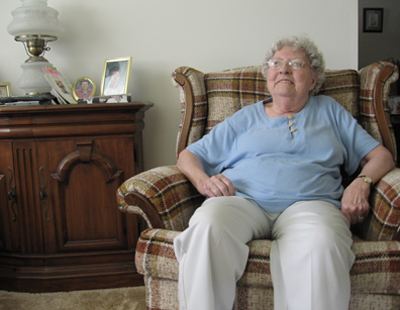3.2 Who decides on your behalf?
Imagine you lack mental capacity. Perhaps you can recall what it felt like when you drank too much alcohol or you came around from an anaesthetic. Try to remember how this made you feel. Now try this activity about Doris.
Activity _unit3.3.1 Activity 3 Helping Doris

Doris is an 89-year-old woman, living alone. You are a relative who lives some distance away and you’re concerned that Doris is losing her memory, not looking after herself properly and is no longer able to make decisions for herself.
Visit the websites of two local authorities, one of your local area and one a different UK nation from your own. By looking at two different websites you get the opportunity to search a website that may not be as familiar to you. Find out:
- how you would report concern about Doris to social services
- what role you have as her relative.
Does the information that you have found help you to know if a decision maker is needed for Doris and if so, who might that be and for what decision?
Make notes in the box below.
If you have found it difficult to locate any required information you may wish to look at some other tools provided here: Social Care Institute for Excellence: Mental capacity assessment tools [Tip: hold Ctrl and click a link to open it in a new tab. (Hide tip)]
Comment
From the information you have found when searching the different websites you may have noticed that local authorities do not all use the same process for enabling you to access the information. You may also have noticed that there will be different referral processes and not each authority asks the same information of you. This exercise may have been straightforward or you may have found this frustrating. Imagine what this might be like for Doris if she does not have a relative or someone else able to make these enquiries on her behalf.
